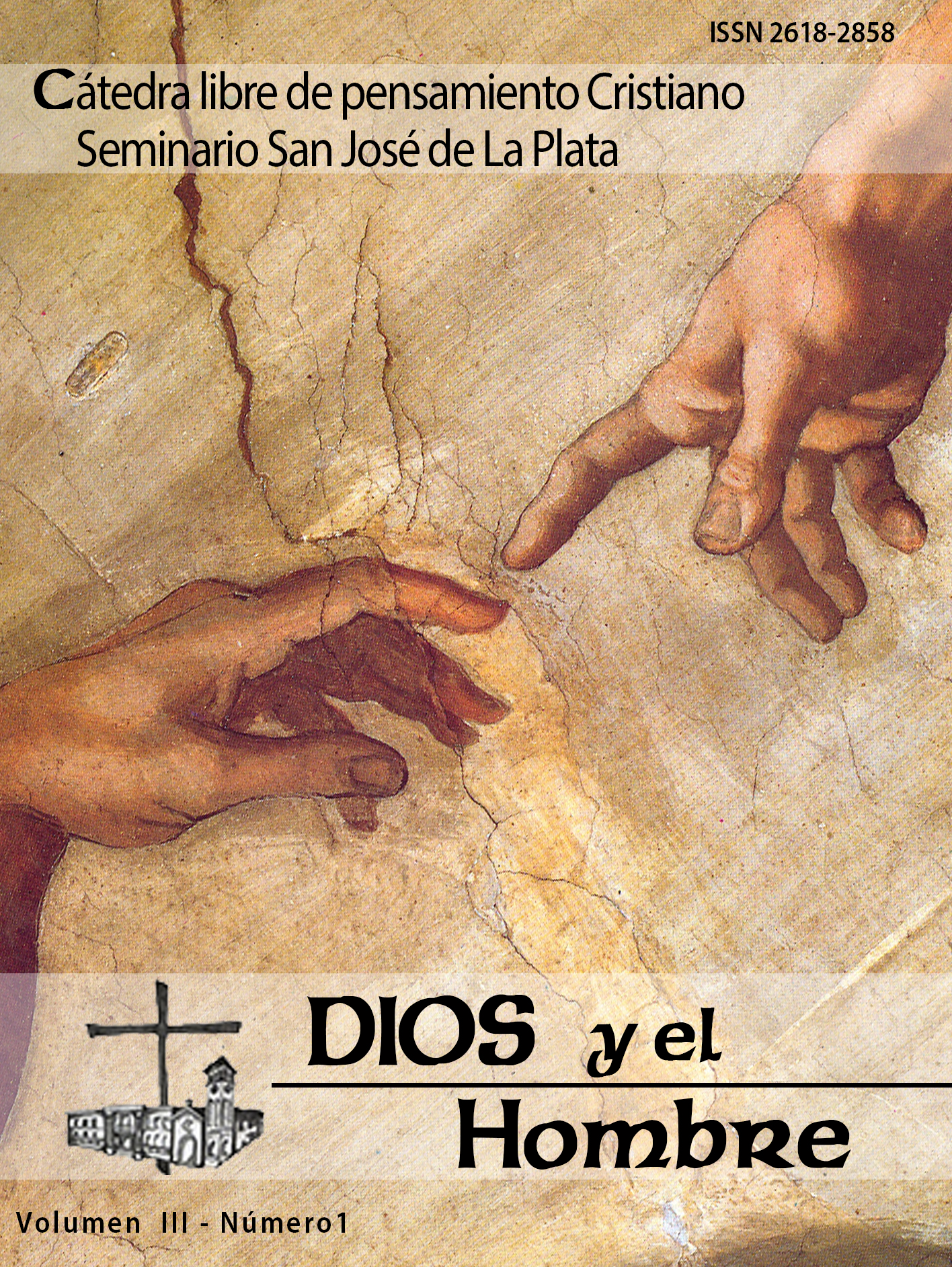THE INFLUENCE OF DUNS SCOTUS IN THE DOCTRINE OF CONTINGENCY ASSUMED BY LUIS DE MOLINA
DOI:
https://doi.org/10.24215/26182858e032Keywords:
Duns Scotus, contingency, Luis de MolinaAbstract
The contemporary studies on the figure of John Duns Scotus have had a great impulse from the interest that has been put in the argumentation on the freedom of the will. In his comments to the Sentences, Scotus maintains that the will is free in the same and for the same moment in which it acts, justifying this with the development of logical-ontological tools.
William of Ockham makes a strong criticism of this doctrine. For his part, he prefers to understand freedom as the power of the will to sustain or restrain his act at a later time.
In the scholastic renaissance, the Jesuit Luis de Molina discusses the issue of the freedom of the will and precisely if it is free at the moment it acts. After rejecting Ockham's proposal, he explicitly leans towards the Scotus’ solution. The objective that we propose in this study is to determine the fidelity with which Molina assumes the ideas of the Subtle Doctor, up to where he follows them and where he abandons them, inquiring a possible explanation of why he does not assume them until its last consequences.
Downloads
Metrics
References
Anfray, J-P.(2014). Molina and John Duns Scotus.En: M. Kaufmann et al. (Eds.), A companion to Luis de Molina (325-364). Leiden: Brill.
Dekker, E. (1995). The reception of Scotus’ theory of contingency in Molina and Suárez. En: L. Sileo (Ed.) In Via Scoti: Methodologia ad mentem Joannis Duns Scoti (445-454). Rome: Edizioni Antonianum.
Dumont, S. (1995).The origin of Scotus’s theory of synchronic contingency. The modern schoolman, LXXII, 160-166.
Duns Scotus, I. (1966). Lectura in Sententiarum I, dist. 8–45. Ciudad del Vaticano: Typis Polyglottis Vaticanis.
Duns Scotus, I. (2008). Reportatio Parisiensis Examinata I-A . New York: Franciscan Institute Publications.
Normore, C. G. (2003). Duns Scotus’s modal theory. En: T. Williams (Ed.), The Cambridge companion to Duns Scotus (129-160). Cambridge: Cambridge University Press.
Massie, P. (2011). Contingency, time and possibility.An essay on Aristotle and Duns Scotus. Lanham: Lexington Books.
Molina, L. de (1953). Liberi arbitrii cum gratiae donis, divina praescientia, providentia, praedestinatione et reprobatione concordia. Oña-Madrid: Colegio Máximo/Sapientia.
Ockham, G. de (1978). Tractatus de praedestinatione et de praescientia Dei et futuris contingentibus. New York: Franciscan Institute Publications.
Ockham, G. de (2000).Ordinatio I, dist. 19-48.New York: Franciscan Institute Publications.
Downloads
Published
How to Cite
Issue
Section
License
Política general de la revista (desde 2018)
La aceptación de un original por parte de la revista implica la cesión no exclusiva de los derechos patrimoniales de los/as autores/as en favor del editor, quien permite la reutilización, luego de su edición (postprint), bajo una Licencia Creative Commons Atribución-NoComercial-CompartirIgual 4.0 Internacional (CC BY-NC-SA 4.0).
Acorde a estos términos, el material se puede compartir (copiar y redistribuir en cualquier medio o formato) y adaptar (remezclar, transformar y crear a partir del material otra obra), siempre que a) se cite la autoría y la fuente original de su publicación (revista y URL de la obra), b) no se use para fines comerciales y c) se mantengan los mismos términos de la licencia.
La cesión de derechos no exclusivos implica que luego de su edición (postprint) en Dios y el Hombre los/as autores/as pueden publicar su trabajo en cualquier idioma, medio y formato; en tales casos, se solicita que se consigne que el material fue publicado originalmente en esta revista.
Tal cesión supone, también, la autorización de los/as autores/as para que el trabajo sea cosechado por SEDICI, el repositorio institucional de la Universidad Nacional de La Plata, y sea difundido en las bases de datos que el equipo editorial considere adecuadas para incrementar la visibilidad de la publicación y de sus autores/as.
Asimismo, la revista incentiva a los/as autores/as para que luego de su publicación en Dios y el Hombre depositen sus producciones en otros repositorios institucionales y temáticos, bajo el principio de que ofrecer a la sociedad la producción científica y académica sin restricciones contribuye a un mayor intercambio del conocimiento global.



















